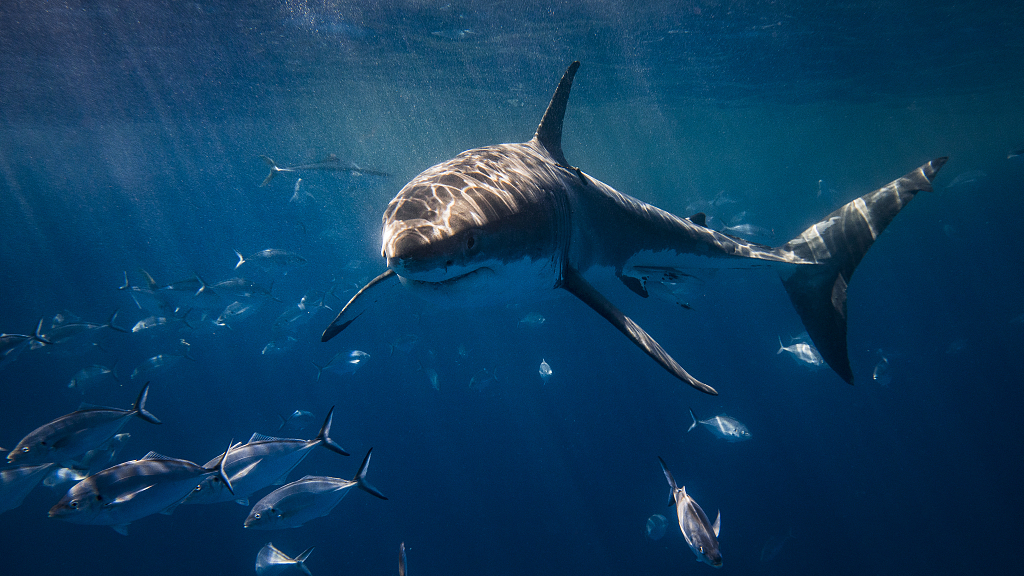Sharks and rays are faring better in Australian waters amid a global population decline, an international research has found.
The Global FinPrint united researchers from around the world to conduct a five-year international survey of marine life on coral reefs and published their findings on Friday.
They found that the five main species of shark that live on coral reefs have declined by an average of 63 percent globally due to overfishing.

Sharks and rays are faring better in Australian waters amid a global population decline, an international research has found. /VCG
Sharks and rays are faring better in Australian waters amid a global population decline, an international research has found. /VCG
However, co-authors of the landmark study from the Australian Institute of Marine Science (AIMS) found healthy populations on coral reefs with fishing restrictions off the coast of Western Australia (WA) in the Indian Ocean.
"Compared to other regions around the world, the shark and ray populations in WA reefs are doing well," Conrad Speed, a marine ecologist from AIMS, said in a media release.
According to him, coral reefs with marine protected areas and fishing restrictions, a long way from human populations were found to have the healthiest shark and ray populations.
Fewer sharks were found on Indian Ocean reefs in areas that are open to fishing.
Sharks and rays play a crucial role in maintaining the health of coral reefs, including by preying on carnivorous species like snapper.

Sharks and rays play a crucial role in maintaining the health of coral reefs. /VCG
Sharks and rays play a crucial role in maintaining the health of coral reefs. /VCG
Speed said healthy reefs generally had abundant sharks and rays while those in a degraded state only had rays.
"This is because there is limited fishing protection for a variety of social and economic reasons, meaning reef sharks have been overfished, resulting in only rays remaining. Some of these regions don't have the resources to manage reefs and their shark populations effectively," he said.
On the iconic Great Barrier Reef, parts of which are subject to strict fishing restrictions, AIMS scientists found low levels of resident shark population depletion and a very high diversity of sharks and rays.
(If you have specific expertise and want to contribute, or if you have a topic of interest that you'd like to share with us, please email us at nature@cgtn.com.)
Source(s): Xinhua News Agency